Shivan Sarna interviews guest expert, Dr. Tom Messinger on the topic of Candida
Everything from icky oral thrush, to embarrassing vaginal yeast infections, and of course, as a major cause of SIBO… candida is very much the “fungus among us.” It affects millions of people and can cause real havoc on the body, especially in the gut.
Luckily, we have expert candida fighters on our side – like Dr. Tom Messinger.
Dr. Messinger is a licensed Naturopathic Doctor with a unique history. Prior to becoming an ND, he was a Registered Nurse for 23 years, spending most of his career working in inner city Emergency Departments/Trauma Centers. He is founder and Clinic Director of Portland Natural Medicine in SE Portland.
Recently, I was able to speak with him about the pervasive issue of one of SIBO’s main causes: candida.
So, what exactly is Candida?
Simply put, Candida albicans is the most common form of fungal yeast infection in people worldwide – affecting mostly the mouth, gastrointestinal tract, skin, genitalia, and urethra. Its symptoms can range from the annoying to debilitating… everything from itching and pain to filmy white patches and blistering rashes.
When it comes to digestive symptoms, the “usual suspects” of bloating, cramping, constipation, diarrhea and even recurrent sinus problems can signify a candida infection. However, you may experience symptoms with a broad range, which is why candida itself is a tricky character to identify just from symptoms alone.
Risk Factors Leading to Candida Infections
Obviously, bacteria is all around us in the natural world. In our gut, a balance of good bacteria versus bad is what keeps us healthy and our digestive system moving along. However, there are specific links between medications we may take and the creation of a bacterial imbalance in our gastrointestinal tract, leading to candida.
So what are these specific risks?
- Antibiotics. It’s no surprise that use and indeed, overuse of antibiotics leads to an imbalance of bacteria in our gut. Dr. Messinger points out that even antibiotics prescribed as teenagers for acne can do damage to the microbiome and puts users at risk of major fungal overgrowth.
- Oral Contraceptives. These medications are a huge risk factor for candida, because the candida organism has estrogen receptors. When you’re taking in estrogen in the form of medicine, it’s going to cause that candida already present in your gut to reproduce and grow.
- Steroids. While these powerful medicines may be prescribed to help an individual with inflammation, steroids will also increase the risk of candida overgrowth.
Once candida is suspected, Dr. Messinger has a series of preferred tests he will run to pinpoint the problems and address each, one by one.
Candida tests
There are several lab tests that Dr. Messinger recommends for his patients, such as:
- Testing for IGM, IGG, and IGA antibodies (via a blood test). This is a fairly common test most insurance covers, and is administered through LabCorp. Elevated levels of these particular antibodies signals the presence of candida.
- Broad stool panel with yeast culture. This test includes a microscopic analysis to identify if any yeast is present.
- Organic acids test. A bit more uncommon but nonetheless useful. If a patient has an elevated level of ribonolactone in the urine – a metabolite produced by candida – then that signifies overgrowth.
Not all tests are needed for every patient. It mainly depends on what is required for each situation and the indicators discovered. Sometimes cost is a factor for the patient and this needs to be considered.
Treating Candida the Natural Way
One thing to note about candida – it can be stubborn to treat, and make take nine months to a year to clear. The key to ridding yourself of candida is a competent doctor’s care and consistency.
Dr. Messinger is quite particular about the herbal medicines he likes to use for his SIBO patients, and in a very particular order.
MC-PZ. For days one through four, Dr. Messinger will administer a formula called MC-PZ by Beyond Balance. It’s a combination herbal that has antimicrobial and antifungal properties.
Because many of his patients are sensitive, Dr. Messinger starts them on a lower dose – one drop twice a day. Then days five through eight will have them rotate to something else.
Oil of oregano. Popular with any functional healthcare providers in the treatment of SIBO, Dr. Messinger next puts his patients on this twice a day. At the same time, he might include a formula called Phytostan by Integrated Therapeutics, one cap three times a day.
Mycoregen. During days nine through twelve, Dr. Messinger will give his patients a formula called Mycoregen by Beyond Balance. A stronger medicine, he proceeds with caution and starts people out at one drop twice a day. They go through a twelve-day cycle and then repeat it until results can be seen.
Additional formulas may include the antiparasitic artemisinin, Neem Plus by Research Nutritionals, and the candida offerings from Biotrex.
What About Biofilms?
Biofilms are a thin membrane organisms create that functions as a roof-like structure. The biofilms are made up of polysaccharides, lipids and metals that are relatively hard to penetrate.
To break through the biolfilm barrier, Dr. Messinger has used serrapeptase, which has been helpful to some patients. In addition, Dr. Messinger has experimented with Beyond Balance formulas like BFM-1, which contains a Guggul lipid. Guggul is an ayurvedic herb and it’s good for breaking down these elusive organisms.
In this process, not only is the biofilm being broken up, but the organisms underneath become more accessible to the treatment. That can cause some die off, where the organism is going to produce more toxins, either because it’s being killed off and it breaks apart and releases toxins, or it’s trying to defend itself. The die off process can be uncomfortable, but should subside once the toxins released have been excreted out of the body.
Binders used during the die-off phase can also help – such as chlorella and bentonite clay (use under the care of a competent functional medical professional).

Dr. Messinger has also stated:
“I want to say one other thing about candida, Shivan. It is often thought, in the holistic medical field, that in candida overgrowth there is a high probability of heavy metal toxicity.”
So, you’ll want to investigate your level of heavy metal toxicity, too, in partnership with your physician.
What have you done to treat your symptoms that has worked or hasn’t worked?


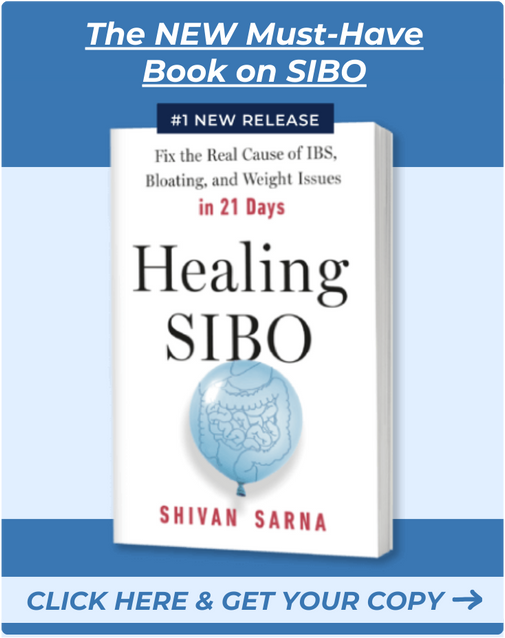
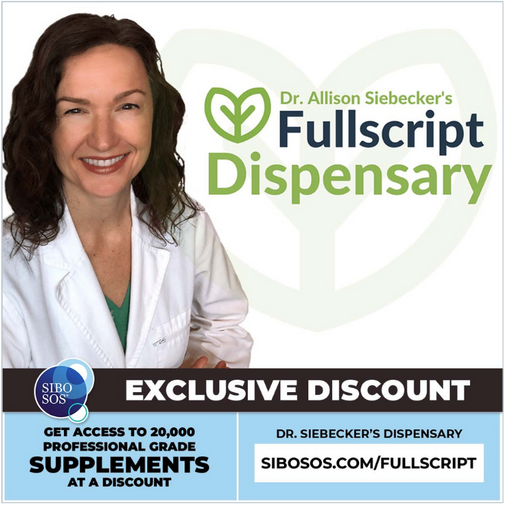
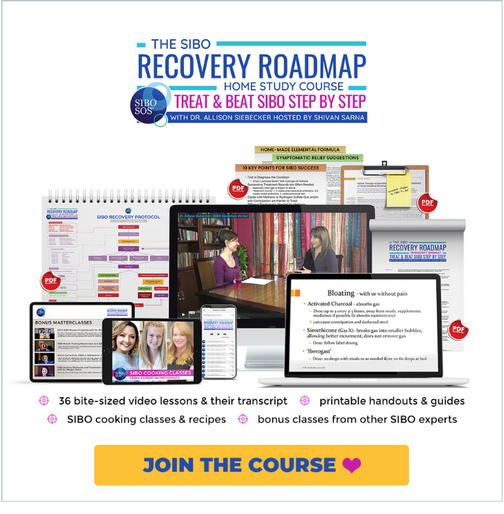




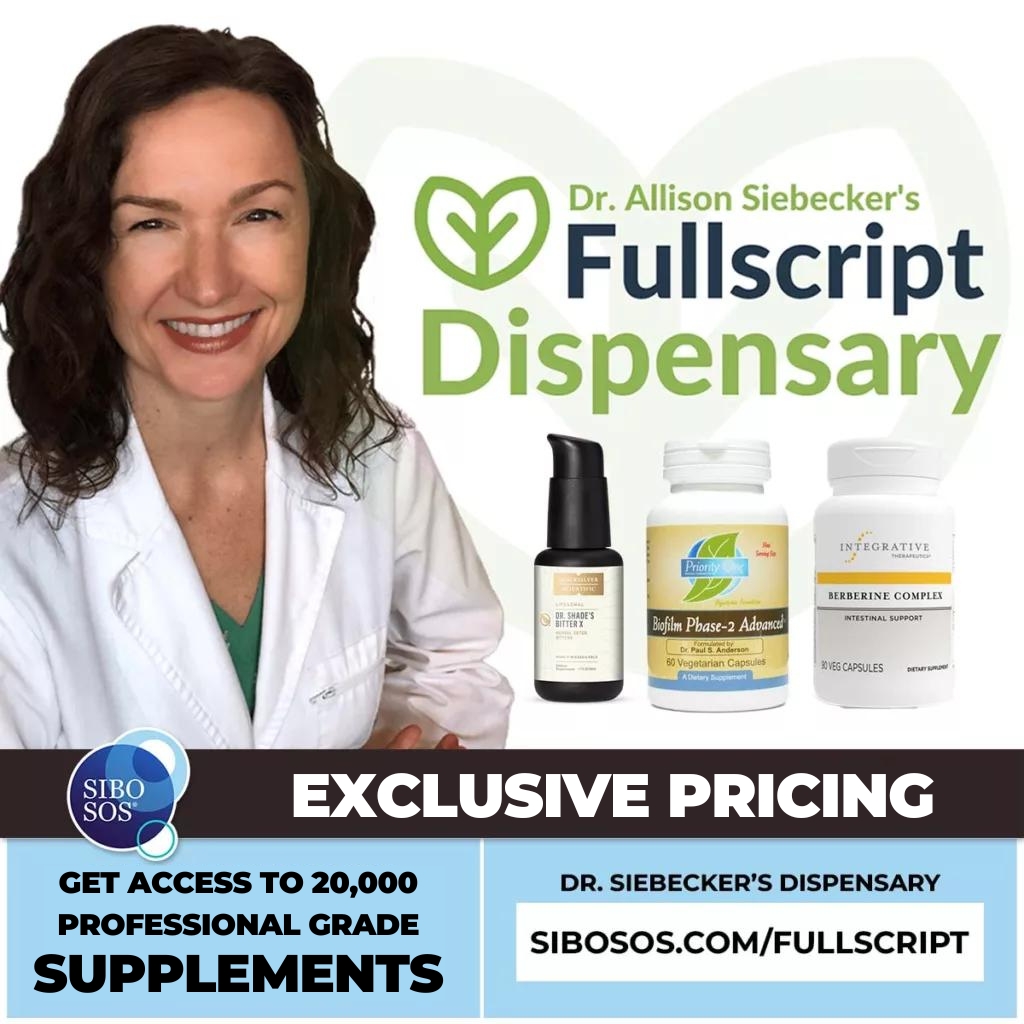

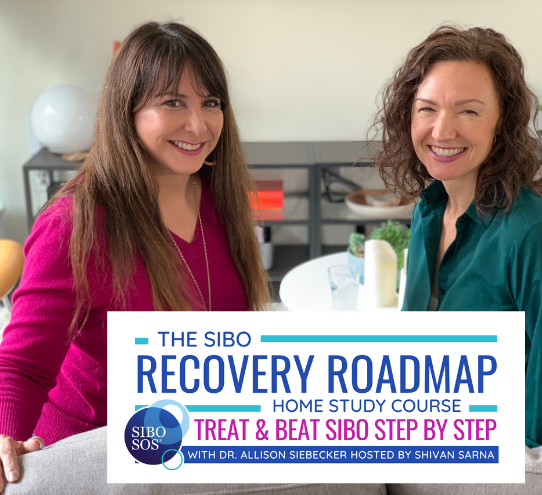

17 thoughts on “SIBO and Candida overgrowth- talking with with Dr. Tom Messinger”
hi, I suffer from fibromyalgia, and my organic acids test indicated gut dysbiosis, with malapsorption, and also tested high for arabinose and citramalic acid. My Integrative Medicine doc put me on herbal antibiotics and refused to do a SIBO test before – or after, and poopoohed the idea of rotating with probiotics. He also didn’t note the relationship between the high arabinose/citramalic acid and candida, and possible throat thrush, Am I justified in feeling that I’m not getting the proper care here?
Anyone have recommendations for a provider to treat SIBO and Candida in the SF Bay Area?
Hi Ry,
At the risk of being Shivan’s parrot here… what we like to say is that the “SOS” in the “SIBO SOS” brand stands for “save ourselves.” I cannot really tell what direction your doc is really taking your care, and we’re in no position to question his clinical judgment (obviously, he has more information about your case than we do).
But if you in the LEAST BIT suspect you’re not getting the proper care, or that you need to expand the scope of your current care, then we’d really encourage you to get a second opinion.
Oh, by the way, if you go through Aerodiagnostics Lab for your SIBO breath test, you can order the test yourself! They have a great customer service team there. Gary Stapleton (who is one of our featured speakers) is very hands-on at the lab. If you want to call them first before getting the test, that would be a great place to start. You can find them at Aerodiagnostics.com.
I’m sorry I can’t think of a practitioner in the SF area. But our go-to experts for SIFO and Candida are Dr. Satish Rao and Dr. Ami Kapadia. I’m wondering if they do telemedicine… hmmm…
Dr Ruscio is in Walnut Creek👍 That might be a good choice
Absolutely! We love Dr. Pimentel!!!
Does anyone know if its ok to take the 3 hour breathe test for SIBO when you react to dairy? I’ve never been tested for diary allergy so I don’t know if I am allergic but I do react to dairy and do not eat it. If I am going to do the test seems like tje 3 hour is better to do because it provides more information. Any thoughts?
Hi Sandra,
Great question. The 3-hour breath test is with Lactulose (sugar base) NOT lactose (milk base). You will need a doctor’s prescription in the US for the Lactulose test, so it’s always good to discuss any concerns with you doctor who will not only know any meds you are taking, but also can direct you as to the correct protocol to make sure you get an accurate test.
Would the 3 hour SIBO test be ok for people who react to dairy? I have not been tested for milk allergies but I do react with abdominal distention and brain fog. I have heard that running the 2 hour test is better for people who react to milk products and my doctor doesn’t know enough to say either way. I heard the 3 hour test is better to run rather than the 2 hour for getting additional important information. Any thought on if reacting to milk is enough to not run the 3 hour test?
Hi Sandra,
Here’s my response to your other email with the same questions:
Great question. The 3-hour breath test is with Lactulose (sugar base) NOT lactose (milk base). You will need a doctor’s prescription in the US for the Lactulose test, so it’s always good to discuss any concerns with your doctor who will not only know any meds you are taking, but also can direct you as to the correct protocol to make sure you get an accurate test.
Karen
SIBO SOS Team Member
Hello – I see a naturopath and functional medicine doctor. I treated candida from 1/18-4/18, then SIBO symptoms were presented. I started seeing a GI doctor who tested and confirmed SIBO. I just finished the treatment for SIBO and still have symptoms. Next step is colonoscopy on 12/18. I suspected the candida diet/treatment caused SIBO. Why does that happen? Why would I still have SIBO symptoms after treatment is completed?
It’s not unusual to have to do more than one round of treatment for SIBO. Dr. Siebecker’s protocol is to retest after treatment, so you know what you are dealing with. Perhaps you can discuss with your Dr. You may not have found the root cause.
I have been fighting Candida for nearly 30 years and really need a competent Candida knowledgeable
Naturopath like Dr. Messinger. How do I make contact PLEASE…
Hi Lisa, You will find the list of practitioners with contact details here: sibosos.com/practitioner-list
Should oil of oregano be taken continually or should a rest period be allowed? I have SIBO.
I’m not a dr. but they do say to rest vs. everyday unless you are under a treatment plan.
Hi Shivan,
Thank you so much for providing this – question please: For chronic bloating/belching, which one should be treated first, SIBO or Candida?
It sounds like perhaps Candida, but also sounds like a quite complex issue/question . . .
Thank you!
Great information, thank you for sharing!
Hi
I would like to try the natural treatment if you can help me.
Thank you